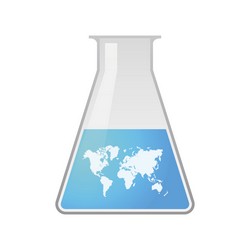Global collaborations for polymer study in energy & environment
There are currently important research relationships all over Europe in the study of poly(ionic liquids). These partnerships include the research organisations University of the Basque Country (Spain), University Cergy-Pontoise (France) and University Nova of Lisbon (Portugal). There are also non-EU organisations: Russian Academy of Sciences (Russia), Vellore University-VIT (India), Soochow University (China) and Federal University of Rio Grande do Sul (Brazil). The EU-funded IONRUN (Innovative ionic polymers from natural sources for energy & environment) initiative set out to strengthen partnerships using staff exchanges and networking activities between Europe and Argentina, Brazil, China, India and Russia. The initiative wanted to provide support for participating research organisations through long-term cooperation in a coordinated joint research programme studying innovative ionic polymers. To exploit the complementary expertise of participants, IONRUN included joint research and training activities, workshops, seminars and other networking activities. Researchers developed innovative ionic polymer materials using natural and renewable sources. IONRUN also designed and synthesised green catalysts and other environmentally friendly polymerisation processes. The team developed materials and tested them for energy and environmental applications such as electrochemical energy storage and water purification. Project researchers developed new cholinium biopolymers, deep-eutectic poly(ionic liquids) and new all-solid electrochromic devices. They also developed ionic liquid-based membranes and new stabilisers for functional colloids. The researchers were then able to investigate these new polymers in different areas of energy and the environment. The team used single-ion conducting polymer electrolytes in all-solid lithium batteries and found that they performed excellently at low temperatures. IONRUN developed new polyurethane foams that they endowed with antimicrobial properties, which can be used to purify water. The researchers investigated innovative polyionic liquids for different technologies such as batteries and supercapacitors and environmental applications including gas membranes, water purification and CO2 capture technologies. IONRUN successfully strengthened existing collaborations between the partners involved and successfully consolidated the future of these partnerships. These results will bring about more effective and productive research on innovative polymers and their application. This collaboration has resulted in increased knowledge of polymers from natural sources for energy and the environment.







